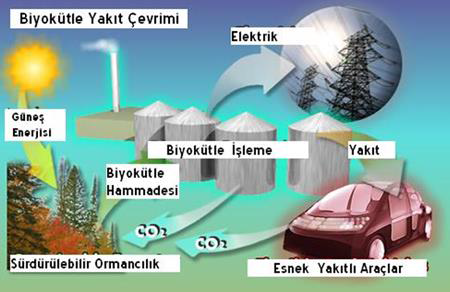BIOMASS
Biomass is defined in the law on utilization of renewable energy resources for the purpose of generating electrical energy as solid, liquid and gaseous fuels obtained from organic wastes as well as agricultural and forestry products, including vegetable oil wastes and agricultural harvest residues, and from by-products resulting from the processing of such products.
Biomass is defined as wastes and residues, of unfossilized living creatures that lived underground, aboveground and in waters within a certain period of time, emerging as the origin of all organic substances and living organisms containing carbohydrate compounds.
Trees, specially-grown crops such as corn and wheat, herbs, seaweeds, marine algae, any organic domestic waste such as fruit and vegetable residues, animal feces, manure, and industrial wastes are examples of biomass. Biomass is recognized as a suitable and significant source of energy since it is inexhaustible, capable of being grown everywhere, and contributory to socio-economic development of rural areas.

The use of biomass is becoming increasingly important to solve the energy problem arising from limited energy resources such as petroleum, coal and natural gas and environmental pollution caused by these resources.
Fuel is obtained from biomass through physical processes (size reduction-crushing and grinding, drying, filtration, extraction and briquetting) and conversion processes (biochemical and thermochemical processes).
Biomass materials are processed with biomass conversion techniques and converted into solid, liquid and gaseous fuels. At the end of the cycle, in addition to fuels such as biodiesel, biogas, bioethanol, and pyrolytic gas, which are the main products, some by-products such as fertilizers and hydrogen are also obtained.
